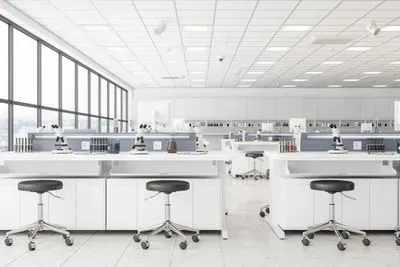
While there aren’t any specific steps one needs to take in order to become a lab planner, there are some valuable career choices to make in order to get to that point. Lab Manager speaks with Glen Berry, AIA, NCARB, senior lab architect with HERA laboratory planners, about his own career and what others interested in the field of lab planning should consider.
Q: Are there any specific certifications, licenses, or requirements necessary to call oneself, or one's firm, a "lab planner"?
A: There is no license or certification required to be a lab planner. Because lab planning is an integral part of the building design process, many lab planners are licensed architects. Some lab planners who are also licensed architects prefer to reference their profession as a “laboratory architect,” instead of a “laboratory planner,” in order to make the distinction between being licensed as an architect versus not being licensed. Generally, anyone who thinks that they are qualified to be a lab planner can say so.
Q: Is there a particular background or academic degree that's particularly useful for a career in lab planning?
A: The background and training varies. I have known lab planners who have only a science background, with education and work experience in science, and then have transitioned to the building design industry as a lab planner. Such a transition takes years to be effective in the role of a lab planning consultant. I have known others, such as myself, who chose a career in architecture and design, and then as a result of working on one or more science building projects, decided to focus their career as a laboratory planner or laboratory architect. This pattern also takes many years to be effective in the role of lab planning consultant. My first project in my design career was the Eccles Genetics Research Center at the University of Utah, for the Howard Hughes Medical Institute. I made a conscious decision as a graduate student studying architecture to specialize in laboratory design, and that is what I have done all of my career, which so far is 34 years in laboratory design. But there is no officially recognized certification or registration for an architect who specializes in lab design, other than having the experience in that building type.
Q: If an existing design/build firm would like to branch out into lab planning, what do they need to know?
A: Branching out into the lab design field is a challenge to say the least. It takes years of experience to learn to be proficient in lab design. Many of my early career mentors would say that it is a two-year learning process just to learn the very basics of lab design, and then it takes many years thereafter to gain proficiency and recognition as a leader in the field. I have known architecture firms who made a conscious decision to specialize in lab design, and made an investment in staff with lab design experience, but did not see any long term success. It takes years of experience to get to a point where one can say with some confidence that they have the necessary experience to do lab planning on their own. In my own situation, it was only after 12 years of working as a laboratory architect for other firms that specialize in lab design, that I decided I had the necessary experience and client base to start out on my own. After having my own lab planning consulting firm for 18 years, I recognized the importance and advantage of being part of a larger team, with support in technology, marketing, technical expertise—and so I merged my firm, Design for Science, LLC with HERA Laboratory Planners in November 2018.
Q: Are there any educational courses that would be helpful for those considering a career in lab planning?
A: Any form of education in architectural design would be helpful. Having a science background is helpful too, but not as critical in my opinion. At the end of the day, what matters in the success of a lab is the design, not the science. The science happens after the building is built. The design will either enhance or detract from the science. It was only after 30 years of work experience, at the age of 60, that I felt like I had reached a point in my career that I could say that I have considerable experience and knowledge in the lab design field. I still continue to learn every day. But it takes many, many years to get to a point where you can speak with confidence in front of a client or potential client, and have them feel confident that what you are saying is valid and useful.
Laboratory planning and design is a very gratifying career for those who are willing to make a significant investment in many, many years of specialized practice.














